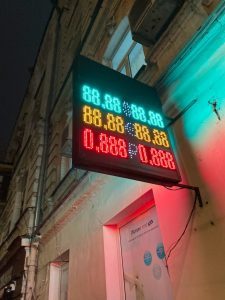Forex trading and stock trading are two popular investment methods that have been around for decades. Both trading systems have their advantages and disadvantages, and investors must choose the one that suits their financial goals and risk tolerance level. In this article, we will discuss why trade forex and compare it to stock trading.
Forex Trading
Forex trading is the buying and selling of currencies on the foreign exchange market. The foreign exchange market is the largest financial market in the world, with a daily turnover of over $5 trillion. Forex trading involves exchanging one currency for another in anticipation of making a profit from the difference in exchange rates.
The biggest advantage of forex trading is the high liquidity of the market. The forex market is open 24 hours a day, five days a week, making it easier to enter and exit trades quickly. This means that investors can trade at any time without having to wait for the opening bell, as is the case with stock trading.
Another advantage of forex trading is the low transaction costs. Forex brokers charge a small commission or spread, which is the difference between the buying and selling price of a currency pair. This is much lower than the fees charged by stockbrokers, which can eat into investors’ profits.
Forex trading also offers leverage, which allows traders to control large positions with a small amount of capital. This means that investors can make bigger profits with a smaller investment. However, leverage can also amplify losses, so it is important to use it wisely.
Stock Trading
Stock trading involves buying and selling shares of publicly traded companies. Investors buy shares in the hope that the company’s stock price will rise, allowing them to sell their shares for a profit. Stock trading can be done through a stockbroker or online trading platform.
One advantage of stock trading is the potential for high returns. The stock market has historically provided higher returns than other investment options, such as bonds and savings accounts. However, this comes with a higher level of risk, as stock prices can fluctuate dramatically in response to market conditions and company performance.
Another advantage of stock trading is the potential for dividend income. Some companies pay dividends to their shareholders, which is a portion of the company’s profits. This can provide a steady stream of income for investors.
Stock trading also offers investors the opportunity to invest in companies they believe in or have an interest in. This can provide a sense of ownership and pride, as well as potential financial gains.
Forex vs. Stock Trading
So why trade forex over stocks, and vice versa? There are several factors to consider when comparing the two investment methods.
One of the biggest differences between forex and stock trading is the level of volatility. The forex market is more volatile than the stock market, with prices fluctuating more frequently and more dramatically. This means that forex traders must be prepared to handle the risk and uncertainty that comes with trading in a volatile market.
Another difference is the level of complexity. Forex trading involves analyzing economic and political factors that can affect currencies, as well as technical analysis of price charts. Stock trading also involves analysis of company financials and market trends, but may be more straightforward for investors who are familiar with the industry or company.
Liquidity is another factor to consider. The forex market is more liquid than the stock market, with larger trading volumes and more active participants. This means that forex traders can enter and exit positions quickly and easily, without worrying about liquidity issues.
Transaction costs are also different between forex and stock trading. Forex brokers typically charge a smaller commission or spread than stockbrokers, which can be a factor for investors who are looking to minimize their trading costs.
Finally, leverage is a key difference between forex and stock trading. Forex trading offers higher leverage than stock trading, which can provide greater potential returns but also carries a higher level of risk.
Conclusion
In conclusion, both forex and stock trading offer opportunities for investors to make money, but they have different advantages and disadvantages. Forex trading offers high liquidity, low transaction costs, and high leverage, but can be more volatile and complex. Stock trading offers potential for higher returns, dividend income, and a sense of ownership, but can also be more expensive and less liquid. Investors should carefully consider their financial goals and risk tolerance level before deciding which investment method is right for them.





